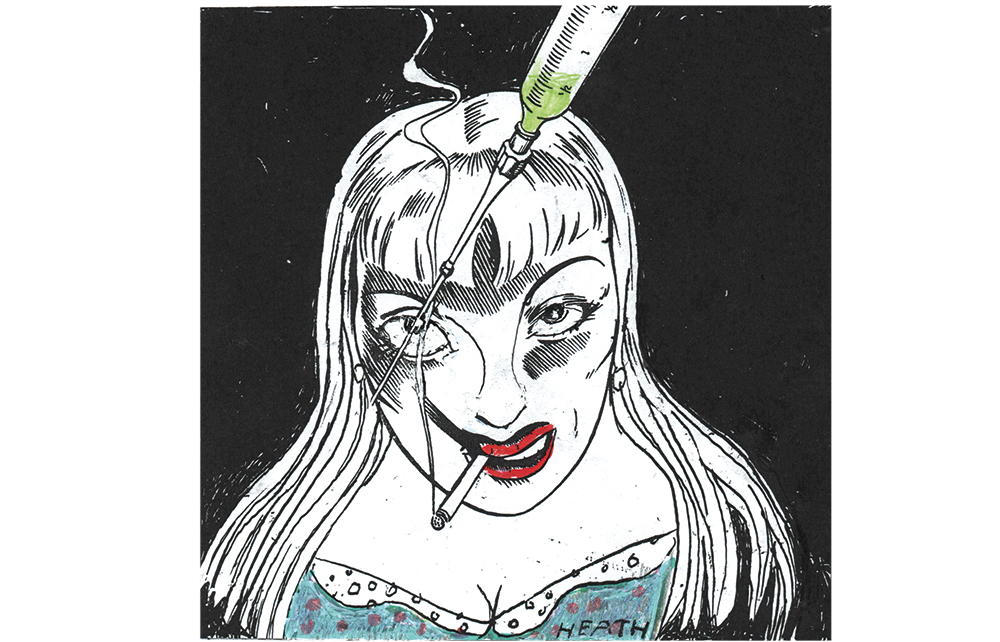It was about this time last year when I stopped receiving the daily messages. At first, I had replied politely. He was from my hometown, so it felt weird to ignore him. A man who knew all of my friends, had even dated some of them, and would often walk past me in the pub couldn’t be that bad, right?
The messages started with the usual: ‘How are you, Kara? Do you fancy a drink?’ When I began to reject him, making it clear that I wasn’t interested, he became manic. He would ask me if I wanted to meet him in a forest not far from where I lived, and, when I didn’t reply to that, his demands became darker and more sexual.
While his messages were a bit alarming, at the time I wasn’t really concerned. Like many young men in my town, he was obviously using hard drugs. I’d often send his unhinged messages to friends, and we’d all have a laugh. He almost became part of my routine. The day the messages stopped, I felt an odd sense of absence.
Then there was a death. But this was nothing new. Growing up, Pontypridd was known as the murder capital of Wales; the town had more killings per capita than any other Welsh community. I didn’t bother to turn up the TV when this latest one was reported. But then the face of my digital stalker flashed up on the screen. Luke Deeley, the man who had been relentlessly pursuing me for more than a year, had killed a woman, 65-year-old June Fox-Roberts, before removing her limbs with a chainsaw. The attack started in the same woodland he had invited me to. Last week he pleaded guilty to manslaughter by reason of diminished responsibility.
My digital stalker had killed a woman, before removing her limbs with a chainsaw
Pontypridd feels strangely primed for death.









Comments
Join the debate for just £1 a month
Be part of the conversation with other Spectator readers by getting your first three months for £3.
UNLOCK ACCESS Just £1 a monthAlready a subscriber? Log in